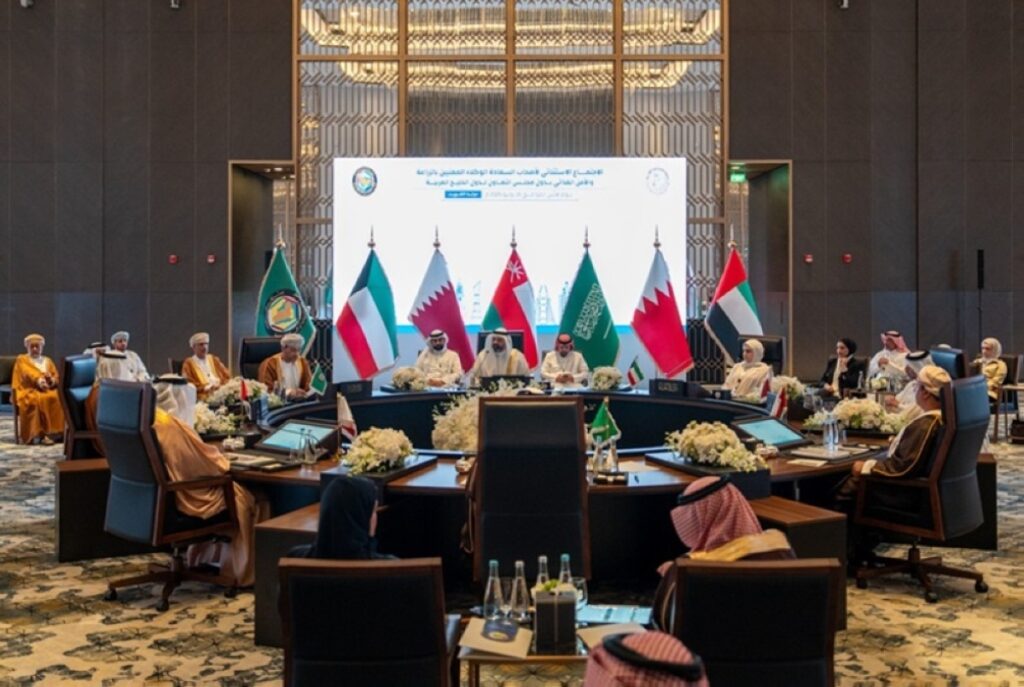Kuwait chairs critical GCC sessions on diplomacy, food security amid geopolitical tensions
KUWAIT: The Gulf Cooperation Council (GCC) convened two extraordinary meetings in Kuwait on Monday to coordinate diplomatic responses and bolster food security preparedness. Kuwaiti Foreign Minister Abdullah Al-Yahya, who currently chairs the GCC Ministerial Council, led the 48th extraordinary meeting of GCC foreign ministers. The meeting, held virtually, focused on the latest regional and international developments, particularly the Zionist entity’s attacks on Iran, the foreign ministry said in a statement. Ministers also discussed ways to strengthen joint Gulf cooperation and intensify diplomatic and political efforts to preserve regional security and stability.

Kuwaiti Foreign Minister Abdullah Al-Yahya (right) and Sheikh Jarrah Jaber Al-Ahmad Al-Sabah, Deputy Foreign Minister, attend the 48th extraordinary meeting of GCC foreign ministers.
In parallel, the Public Authority for Agricultural Affairs and Fish Resources hosted an extraordinary session for GCC undersecretaries responsible for agriculture and food security. Held under the theme of collective regional resilience, the meeting addressed the growing risks posed by climate change, water scarcity, and supply chain disruptions in the context of mounting geopolitical pressure. Authority Director-General Salem Al-Hai opened the session by warning that accelerating global and regional challenges “could threaten food and water security globally – and particularly within the Gulf region.”
Al-Hai stressed that the meeting aims to define “a shared path that reflects the collective will of the GCC nations to safeguard the future of their peoples.” He called for strengthening the Gulf food security system and achieving sustainable self-sufficiency through “strategic, actionable projects grounded in reality and based on regional solidarity and integration.” He described the meeting as “a key milestone in unifying efforts and directing resources toward practical solutions to major challenges,” citing climate change, water scarcity, and supply chain volatility as urgent and shared threats. The meeting agenda included discussions on enhancing institutional and technical cooperation and exchanging expertise in agriculture and food industries. The delegates also explored innovations in smart agriculture and sustainable technologies. Addressing obstacles to food security and proposing collective solutions was also discussed.
Al-Hai praised Saudi Arabia for presenting a major strategic food security initiative, expressing hope that it would become a model for other GCC countries. “Previous experiences have shown that joint Gulf action can lead to significant progress when backed by serious planning and genuine commitment,” said Al-Hai. — KUNA

